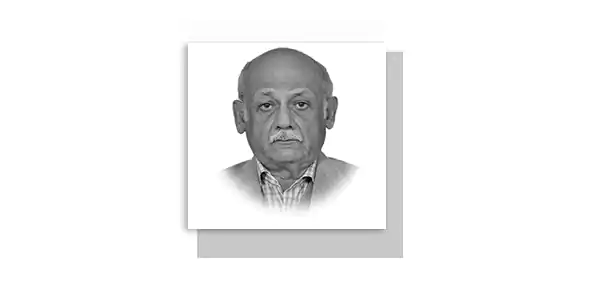Failure of democracy in Pakistan
PAKISTAN has been facing a high degree of political and economic crisis for the past few years. There is an environment of political tribalism. Every single state institution appears to be an advocate of the institution itself and not the state. Same goes for the political parties. It seems like Pakistan is not the ultimate goal of either else. There are no competent and professional experts at higher authorities. No democracy and accountability within the political parties. This is just a complex network of the incompetents ultimately supporting the incompetents on higher authorities. Non-existent service delivery, political instability, economic fallout, inflation and many other such factors do justify the bad governance in the country. In order to address the aforementioned issues, it is important to look at the root causes.
Transparency, accountability, leadership and integrity are the indicators of good governance. And as per these indicators, governance is not good in Pakistan for sure. There’s neither the transparency nor accountability in the system.
The absence of these factors in any system ultimately means the lack of leadership due to non-democratic culture and a severe lack of integrity as well. Evaluating the root causes of bad governance, there are three major elements including devolution, dichotomy and democracy. The 3Ds are very important to analyse and address to ensure good governance in Pakistan.
Devolution is transfer of power from national to local level, a decentralised system that works more effectively. Under the 18th constitutional amendment, local governments structures were organised, but neither the funds nor the powers have been transferred to the local level. To make this system work, political will is the primary element which is sadly missing. Delaying local government elections and giving no funds to the local authorities justify this lack of political will. Let us take an example from recent pandemic. Pakistan did deal with Coivd better than many countries, but it still couldn’t deliver well in rural areas; even there was no significant data available. If the local governments were functional, there could have been a rapid, better and effective response. So there’s a dire need to make the local bodies fully operational with due funds and authorities.
As far as dichotomy is concerned, its presence is almost negligible in our system. The politics-administration dichotomy sets boundaries between the politics and the administration in the system. Taking Pakistan into account in this context, politics and administration are connected with deep roots. The affairs run by administration and elected representatives do work as a set phenomenon. There are cases where the politicians influence the bureaucracy or administration while in some cases the administration is a hurdle for elected representatives. There is a dire need to understand that politics and administration are inherently different and if both are merged together, they can never result in good governance. As mentioned in the beginning that there is an environment of political tribalism, it refers to all the institutions that are not working within the boundaries and showing hegemonic behaviour while disrespecting its constitutional limits. So until or unless, politics and governance don’t have certain strict boundaries, governance system is not going to work. Civil-military dichotomy is also a major issue to be resolved for the system to work smoothly.
Last but not least, democracy. It won’t be false saying that true democracy has never been practised in the country. Political parties are considered as the life blood of democracy. Unfortunately in our case, there are no democratic political parties. A few families and elites form the ruling class and one way or the other they have captured the country. There’s a severe lack of democratic norms, values and democratic culture. There’s a dire need to promote dialogue culture instead of the politics of long marches and violent movements. Religious parties working as pressure groups and chocking the arteries of the country and all this kind of dirty politics is not in favour of the country. This culture is a major hurdle for Foreign Direct Investments FDI) in the country. A state with unstable political and economic sphere and bad governance would never be able to bring investments in the country.
It is important to understand that politics and governance shouldn’t be merged. Politics is a variable while governance in any state is constant. Governance is about running state affairs smoothly.
Governance system needs to be strong enough to work without any hurdle due to politics. To ensure this, structural and foundational reforms are crucial at this time in every single domain i.e. political system, justice system, local governments, law enforcement agencies, etc. And for this purpose, a reform commission should be established directly under the Prime Minister Office. These reforms are the gateway for an efficient system to operate in the country and pave the way for peace and stability which will in turn lead to development in the country.
In short, Pakistan needs a complete overhaul of the system to restore public trust in the state institutions for good governance. Once the trust of the public in the state institutions is restored, there is no more politics involved in the governance, and there is transparency and accountability in the system, Pakistan will be on the track towards a peaceful, stable and prosperous country.
—The writer is Professor of History, based in Islamabad.
Email: [email protected]










